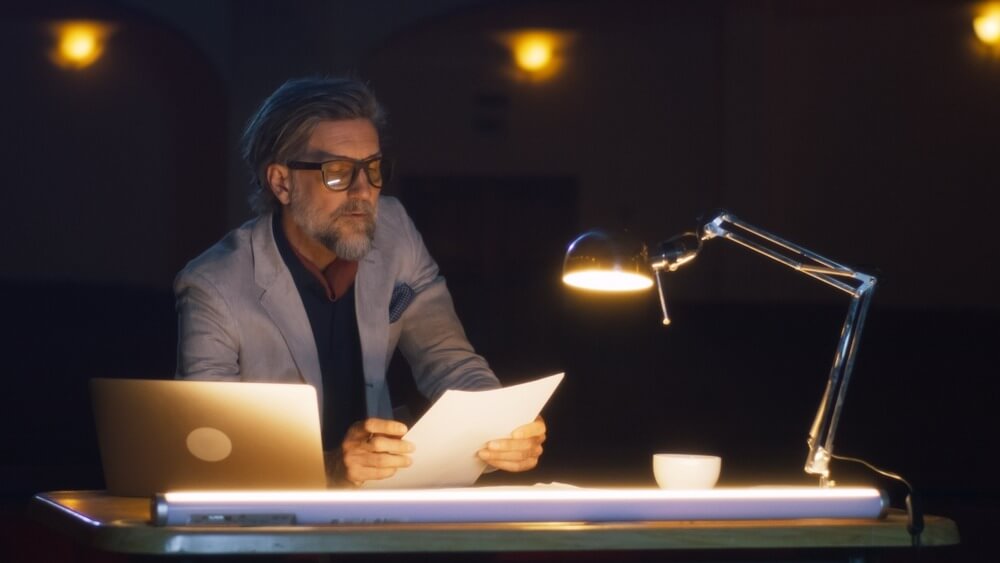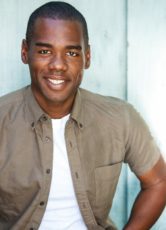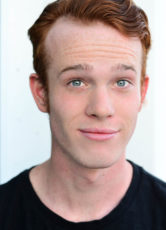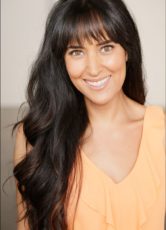
Some think of casting directors as gatekeepers, granting or preventing actors from getting auditions, callbacks or even the role itself. That view can add a lot of pressure to auditions and is enough to make anyone anxious (which isn’t exactly conducive to a great audition).
In reality, casting directors are on your side! They love actors, want you to do your best and want you to be the solution to their casting needs.
When an actor does well, that’s one less role they have to worry about, and it makes them look good to the producers and director.
Instead of an all-powerful giver or denier of opportunity, think of casting directors more as collaborators. Most of the time they aren’t the sole person making casting decisions. Their job is to work with a variety of creatives on the project to help bring scripts to life, fit the artistic vision, serve the production and ultimately find the best fit for each role.
By better understanding the part casting directors actually play and what they are looking for, actors can calm those nerves, better prepare for auditions and increase their chances of success.
What Does a Casting Director Do?
Overall, casting directors find actors for roles in projects. It sounds simple enough, but there’s a lot that goes into it.
First, casting directors dive into the script and make detailed notes on each of the characters and their requirements. Next, they meet with the producers, director and other creatives to discuss their vision for the character, production needs and the types of actors they are looking for.
Casting directors will then organize a casting call and spearhead the audition process. After auditions are done, they will once again meet with the director and producers to determine which actors to cast and will begin contract negotiations with the actor’s agent.
What Goes into the Audition Process?
The audition process can be broken down into three main phases:
- The pre-audition
- The audition
- The post-audition
The pre-audition phase is all about efficiency. The casting director needs to quickly and effectively narrow down the pool of potential actors to a manageable number. They will typically do this by drawing on their vast knowledge of the actors they know from previous auditions, and from attending theater productions, screenings, workshops and other events.
They’ll also post roles on casting sites, such as Casting Frontier, and review submissions, reels, headshots and résumés to identify potential matches for their characters. Chosen actors are then invited to audition in person, or are asked to submit a self tape.
The audition process is where the casting director gets to see the actors perform the role. Typically a short portion of the script, called sides, are provided to the actor in advance, as well as a short summary of the project.
However, at in-person auditions, actors may be asked to do a cold read. This means the actor only gets their sides when they arrive at the audition and have a much shorter time to prepare. The casting director evaluates the performance and may ask a select group of actors back for the next stages of the casting process. This can include callbacks, chemistry reads, an interview or a producer audition session.
The post-audition phase is where decisions are made about which actors to hire. Casting directors will work closely with directors, producers and others on the team to review their top choices for each role. This can be an extensive process involving a lot of people (especially in television casting), and there can be a lot of back and forth. When a choice is finally made as to which actors fit their needs best, the casting director will contact the actor’s agent to negotiate their contract for the project.
If a decision can’t be made, the chosen actor doesn’t work out for some reason, or the team doesn’t like any of the options presented to them, another round of auditions might be held.
What do Casting Directors Look For in Auditions?
First and foremost, casting directors want to see actors come into an audition prepared. This means that an actor has done their homework, took time to understand the character and the script, developed a clear vision for the character by making strong specific choices and has the ability to bring that vision to life in a believable and authentic manner.
Casting directors are also looking to see what you as an individual bring to the role. Adding a touch of your unique essence can set you apart and elevate a portrayal from good to unforgettable.
Another thing casting directors want to see is that the actor can demonstrate adaptability and versatility. At in-person auditions, they may ask you to make certain adjustments to make sure that you can take direction and apply it to your performance, or to help nudge you closer to what was envisioned for the role.
It’s important to avoid common pitfalls in your auditions. First, don’t try too hard. You obviously want to be prepared and give it your best, but if you can’t loosen up and have fun with the opportunity you may seem unnatural and unconvincing. Feel free to take creative risks in your performance, but leave flashy antics and costumes at home—you don’t need them to stand out.
Another common issue actors have is letting their nerves get the better of them. Nerves can make you forget lines, rush a performance or make you seem stiff and uncomfortable. Do your best to let them go—we know, it’s easier said than done. Instead, trust your preparation, take a moment to breathe, be present and remember that the casting director is rooting for you to do well!
Don’t waste too much energy trying to dissect how much the casting director seems engaged in your performance. That can drive you crazy and may make you more anxious. Many casting directors can be difficult to read. Nodding, leaning in, smiling or laughing might indicate a connection, but it isn’t reliable feedback. The best sign that they’re a fan of yours is if they regularly bring you in for callbacks or other auditions.
Self Tape Tips
We’re in a world where self tapes are becoming the norm. Here are a few important things casting directors look for in self tapes:
- A professional environment: Find a quiet place where you will not be interrupted, and minimize distractions (i.e. lots of artwork, windows, pets, etc.) in your frame. It’s not good if your background is more interesting than your performance!
- Good lighting and sounds: You need to make sure that you can be seen and heard clearly, otherwise your audition might be considered unusable.
- Follow instructions: Self tape requests often come with a list of very specific instructions. These might include framing, information to include in your slate, and how to label your video files. Always be sure to submit your auditions on time (if not early).
- Multiple takes: If multiple takes are allowed, make sure each one is different in some way. This allows you to show your versatility and ability to change up your performance.
Why Didn’t I Get Cast?
Not being selected for a role can be disappointing, but it is important to remember that there are many things that go into a casting decision—chemistry, typecasting, wanting a certain look, production needs, an intangible vibe that someone else has—all of these factors can play a part.
It’s also important to remember that rejection is not a reflection of your talent or worth. Decisions are based on who is right for a specific role according to a specific vision, and who everyone involved in the casting process can agree on. The important thing is to keep learning, growing and auditioning for roles. Casting directors will recognize and continue to call in those talented individuals who consistently do good, professional work in their auditions.
Key Takeaways and Final Thoughts
To wrap things up on casting directors and what you can do. Here’s a quick recap of what we’ve learned:
- Casting directors are collaborators, not gatekeepers. Their job is to bring the artistic vision of the creative team to life through casting.
- Actors must be prepared for auditions if they hope to succeed. Portraying authenticity, role comprehension, making strong choices and being open to adjustments can make a tangible difference.
- Success doesn’t always mean booking the role. If a casting director recognizes you as an actor who consistently does good work, they may be more likely to call you back or invite you to more and more auditions.
Remember that casting directors are allies, not adversaries. Do your homework and look at each audition as a chance to collaborate with creatives and tell a story. Use each audition as an opportunity to learn, evolve and refine your talent.
Curious about casting directors? Sign up or log in to Casting Frontier to get cast and get actionable tips that’ll help you leave a lasting impression today!
You may also like:
- Casting Director Lucy Bevan’s Audition Room Tips
- What You Might Not Know About Casting Children’s Series
- The Role of a Talent Agent in an Actor’s Career
Written by Samantha Sullivan




